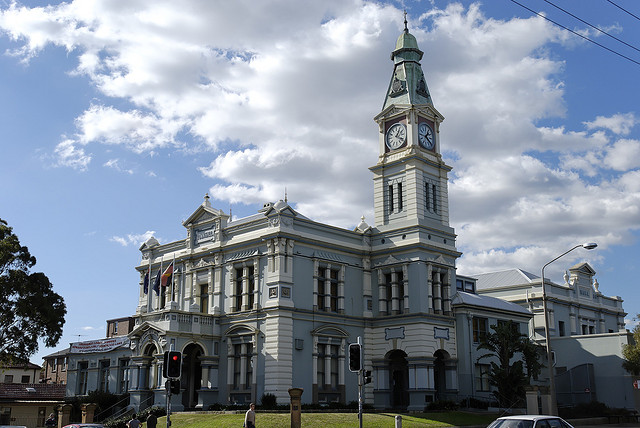“Putting youth at the heart of local government”
June 24 Local government development plans should consider the needs of youth, writes Carl Konadu, 20, a Correspondent from London, UK. He reports on a conference designed to give young leaders a voice in policy-setting.
Local government development plans should consider the needs of youth, writes Carl Konadu, 20, a Correspondent from London, UK. He reports on a conference designed to give young leaders a voice in policy-setting.
Uganda hosted young leaders from around the Commonwealth at the seventh Commonwealth Local Government Youth Forum on the 13th-14th May 2013.
The focus of the forum at Kampala’s beautiful Munyunyo Commonwealth Resort was ‘putting young people at the heart of developmental local government’. Delegates came together to discuss, deliberate and agree on recommendations around this issue. They also contributed their opinions to the Post-2015 development agenda. With representation from ten different Commonwealth countries, the gathering of young people was both diverse and inspiring, catering to a varying range of opinions.
The forum included small discussion groups, presentations, and roundtables with some plenary decision-making. In order to give the young people room for intercultural dialogue on these complex issues, each group was mixed and drew on expertise from different organisations and areas of development.
To give young people a comprehensive view of local government and the issues it faces, organisations made presentations on their work and how this impacts putting young people at the heart of developmental local government.
Microsoft presented their 4Afrika project that focuses on engaging in Africa’s economic development through projects such as the ‘AfrikaAcademy’, ‘Empowering Enterprises’ and ‘Female Empowerment’. The Commonwealth Youth Program described work going on pan-Commonwealth in relation to young people. The presentation drew reference from the 8th Commonwealth Youth Ministers Meeting held in Papua New Guinea in April. With many other organisations represented at the forum, participants were encouraged to share information and network through informal discussion during breaks and over lunch.
The second half focused on collating the information unearthed in the first half and strategically coming up with recommendations. This was achieved through plenary discussions.
The two-day youth forum led into the government conference in which the recommendations agreed upon by the young people were highlighted during the opening of the ceremony by Sammy Kavuma, the chair of the Ugandan National Youth Council. Hence it was important to make sure the recommendations the young people developed were concise, and that they highlighted tangible goals that could be measured. All participants agreed that the next Youth forum in India 2015 should be a measuring point for the outcomes of the recommendations.
With this in mind participants put their heads together to draw out four recommendations on putting young people at the heart of developmental local government, and five further recommendations on the Post-2015 Development agenda. The local government recommendations are as follows:
- The Creation of mechanisms (structures/institutions) for youth participation in local governments appropriate to the local context, and strengthening of those that do exist.
- That the Commonwealth Local Government Forum develops guidelines to mainstreaming youth issues in the work of local government (Case-in-point: Gender consideration).
- Improvement in access and creation of open communication channels between the local government and youth inline with the local context (public meetings / social media).
- That local government adopt measures to increase transparency regarding their operations and budgets allowing citizens to hold them accountable.
The post-2015 development agenda recommendations are as follows:
- To the UN High Level Panel on the Post-2015 development agenda that a specific goal is dedicated to youth empowerment and participation.
- That youth development is adequately represented in the entire post-2015 development framework.
- That Local government develop and strengthen economic policies that encourage youth employment, youth employability and youth enterprise development.
- That the Post-2015 development agenda includes goals and targets specific to regions and nations.
- The inclusion of a goal specifically dedicated to good governance and the establishment of accountability mechanisms
Participants were delighted with the final statement and carried this enthusiasm through to the study visits that took place on Tuesday morning. These visits gave young people an opportunity to see the bottom-up work taking place in co-ordination with the local government.
One of the study visits was to the Kyebando Tusobola Youth Initiative Africa. This local community uses garbage to commercially manufacture briquettes. The local government funded the initiative to help purchase equipment such as grinders, uniforms and materials to cover their goods in order to upscale their work and provide for their community. Participants visited a few more local government-funded initiatives before heading back to the Munyunyo for the opening ceremony of the conference.
Overall, the forum gave youth leaders the opportunity to present their ideas on the best ways of putting young people at the heart of developmental local government. With the increase in issues related to young people such as unemployment, crime and violence, and gender empowerment, there is a huge emphasis on both national and local government to work with the leaders of tomorrow to help come up with solutions today.
Platforms such as CLGYF 2013 are extremely important for intercultural dialogue on the route to tackling global problems. Young people, practitioners, policy makers and decision-makers should continually work together to make the most of these platforms and ensure that the outcomes are sustainable and achieved in the long term.
photo credit: Tony Rodd via photopin cc
…………………………………………………………………………………………………………………
About me: I am an International Relations and Politics student from London. I live by the notion that ‘The World Is Yours’ and as a result you can do anything you put your mind to.
With a sport background, I have a passion for the SDP sector, the governance of sport and its use as a diplomatic tool. My interests include the sustainable rise of Africa, financial markets and international affairs. I appreciate feedback on my writing and thank you for tuning in!…………………………………………………………………………………………………………………
Opinions expressed in this article are those of the author and do not necessarily represent the views of the Commonwealth Youth Programme. Articles are published in a spirit of dialogue, respect and understanding. If you disagree, why not submit a response.
To learn more about becoming a Commonwealth Correspondent please visit: http://www.yourcommonwealth.org/submit-articles/commonwealthcorrespondents/




